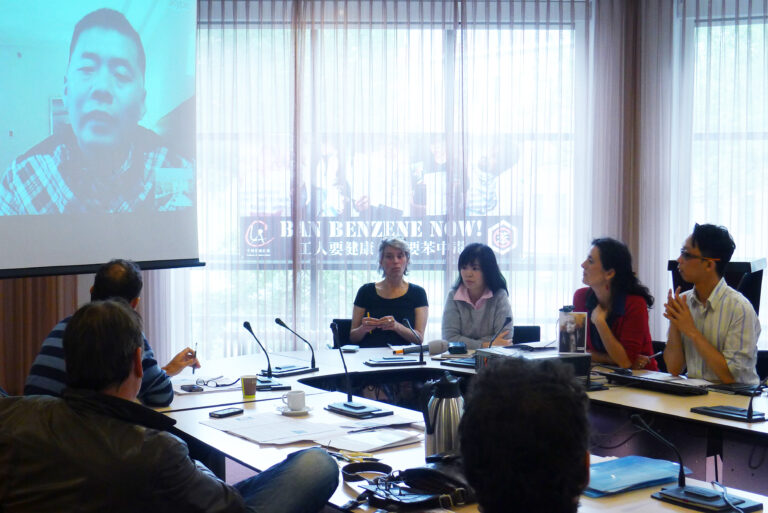
Dutch microchip firm needs to address health risks at Chinese factory
A report published by SOMO today – the International Labour Organization’s World Day of Health and Safety at Work – finds that the Dutch-based company ASM International N.V. (ASMI) should take responsibility for addressing health risks at the factories of its former subsidiary company, ASM Pacific Technology (ASMPT).
The fact that ASMI is a minority shareholder of ASMPT is no reason for inaction, the report concludes. The background to the research involved the incident whereby of an employee of ASMPT in China fell ill with leukemia, after reportedly being exposed to the carcinogenic substance benzene on the work floor.
Ming Kunpeng was only 19 when he started working for ASM Micro Electronic Technology in Shenzhen. Reportedly, he handled benzene on a daily basis. In 2009, the Guangdong Prevention and Treatment Centre of Occupational Diseases diagnosed him with occupational leukemia, indicating that his illness was work-related. Ming was unable to pay for proper treatment, and committed suicide in December 2013. ASMI has contested the occupational cause of Ming’s illness.
About ASMI
ASMI produces processing equipment for the global semiconductor industry and operates in the US, Asia and Europe. The company operates under two divisions: front-end and back-end (ASMPT). Over the past decade, shareholders have raised concerns over the negative market value of ASMI’s front-end business, suggesting that the company should be split up. As a result, ASMI sold 12% of its stake in ASM PT in March 2013, reducing its interest to a minority share.
When confronted with Ming’s story, ASMI denied that benzene was or is used, and pointed to unpublished investigations conducted by the factory where Ming worked. Moreover, in a letter addressed to the GoodElectronics Network, ASMI pointed to the fact that, due to the divestment, ASM PT is no longer a subsidiary.
No reason for inaction
ASMI recently developed a Corporate Social Responsibility (CSR) policy, but it is unclear to what extent this applies to ASMPT. The policy refers to a number of international standards, including UN standards. The due diligence requirements of the UN Guiding Principles for Business and Human Rights include the identification, prevention and mitigation of any adverse impacts.
In a recent clarification of these principles, special representative John Ruggie stated that they unquestionably apply to minority shareholders. Therefore, SOMO argues that the change in ASMPT’s ownership structure is no valid reason for inaction; ASMI still has a responsibility to actively address occupational health and safety risks.
Also read the article Chinese activists invited by FNV and GoodElectronics to discuss chemical poisoning.
Related content
-
ASM International Published on:Posted in category:Publication

-
 Chinese activists invited by FNV and GoodElectronics to discuss chemical poisoningPosted in category:NewsPublished on:
Chinese activists invited by FNV and GoodElectronics to discuss chemical poisoningPosted in category:NewsPublished on: -
 The hidden human costs linked to global supply chains in ChinaPosted in category:News
The hidden human costs linked to global supply chains in ChinaPosted in category:News Joshua RosenzweigPublished on:
Joshua RosenzweigPublished on:

